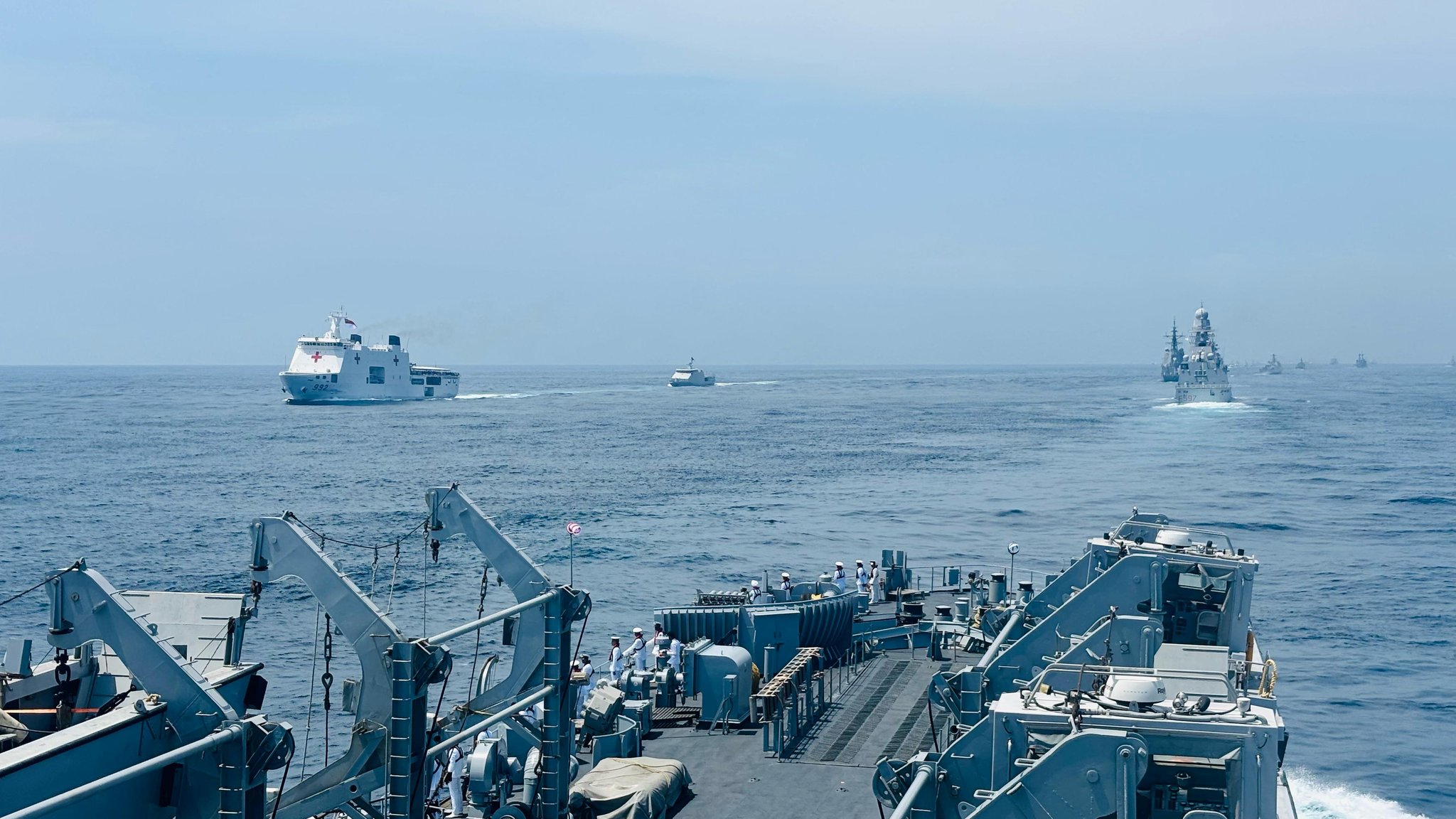Indian Navy Strengthens Regional Maritime Ties: Participation in IFR 2025 and Exercise Komodo
The Indian Navy continues to reinforce its strategic engagement in the Indo-Pacific region with the participation of its frontline platforms—INS Shardul and the P8I Long Range Maritime Surveillance aircraft—in the prestigious International Fleet Review (IFR) 2025 and the multilateral naval exercise, Komodo. This year’s edition of the IFR is hosted by Indonesia in Bali, scheduled from February 15 to February 22, 2025. The participation of the Indian Navy highlights India's commitment to fostering regional maritime cooperation, ensuring security, and strengthening diplomatic ties with Southeast Asian nations under the ‘Security and Growth for All in the Region’ (SAGAR) framework.
The Significance of the International Fleet Review 2025
The event serves as a platform for naval forces to showcase their operational capabilities, share best practices, and engage in diplomatic exchanges. For India, IFR 2025 is a crucial opportunity to reinforce its strategic partnership with Indonesia, a key player in the ASEAN region and a critical maritime neighbor. This engagement also complements India’s ongoing efforts to strengthen maritime domain awareness and collaboration under the Indo-Pacific Oceans Initiative (IPOI).
Key Indian Platforms Participating
INS Shardul: Amphibious Warfare and Logistics Support
INS Shardul, a Landing Ship Tank (Large), is a versatile platform of the Indian Navy designed for amphibious warfare operations and logistics support. It plays a critical role in humanitarian assistance, disaster relief (HADR) missions, and expeditionary operations. Its participation in IFR 2025 showcases India’s capability in supporting regional security through rapid deployment and strategic mobility.
P8I Long Range Maritime Surveillance Aircraft
The P8I, a state-of-the-art maritime reconnaissance and anti-submarine warfare (ASW) aircraft, is among the most advanced platforms operated by the Indian Navy. Developed by Boeing, the P8I is equipped with cutting-edge surveillance and strike capabilities, making it a force multiplier in securing the Indian Ocean Region (IOR). Its deployment to Indonesia underscores India’s growing maritime surveillance footprint and its willingness to engage in collaborative security initiatives.
Multilateral Engagements and Environmental Commitments
During the IFR, the Indian Navy will actively participate in high-level engagements such as the International Maritime Security Symposium and tactical floor games. These interactions provide an avenue for discussions on key maritime security challenges, including counter-piracy operations, illegal fishing, and maritime terrorism.
Beyond military engagements, the Indian contingent will partake in multinational activities aimed at promoting environmental conservation and community engagement. These include:
- City Parade: A cultural showcase reflecting India’s maritime heritage and cooperation with Indonesia.
- Baby Turtle Release: A symbolic act of marine biodiversity conservation.
- Coral & Mangrove Plantation: Highlighting the Navy’s commitment to protecting coastal ecosystems.
- Beach Cleaning Drives: Emphasizing responsible maritime practices and sustainability.
These activities demonstrate the Indian Navy’s holistic approach to maritime security, intertwining military preparedness with environmental responsibility and regional goodwill.
Exercise Komodo: Enhancing Regional Maritime Interoperability
Following IFR 2025, INS Shardul and the P8I will participate in Exercise Komodo, a biennial multilateral naval exercise hosted by the Indonesian Navy. Exercise Komodo is a significant naval drill aimed at strengthening regional security cooperation, maritime domain awareness, and humanitarian assistance operations.
The exercise focuses on non-traditional security challenges, including:
- Maritime Search and Rescue (SAR) Operations: Improving coordinated responses to maritime emergencies.
- Humanitarian Assistance and Disaster Relief (HADR): Enhancing readiness for responding to natural disasters and crises.
- Maritime Interdiction and Law Enforcement Drills: Countering illicit maritime activities, including smuggling and piracy.
- Maritime Domain Awareness Operations: Strengthening surveillance and information-sharing among participating navies.
Strengthening Indo-Indonesia Maritime Ties
India and Indonesia share a deep-rooted maritime history, dating back to ancient trade routes and cultural exchanges. In contemporary times, the two nations have enhanced their defense cooperation through high-level visits and joint exercises. The recent visit of Admiral Muhammad Ali, Chief of Staff of the Indonesian Navy, to India—accompanying Indonesian President Prabowo Subianto, the Chief Guest at India's Republic Day Parade 2025—further solidified bilateral maritime relations.
India’s participation in Exercise Komodo and IFR 2025 aligns with the broader vision of Indo-Pacific stability, emphasizing collaboration in securing critical sea lanes, deterring threats, and fostering diplomatic engagement.
India’s Expanding Role in Regional Maritime Security
The Indian Navy’s participation in these exercises follows its earlier involvement in the La Perouse naval exercise in Indonesia in January 2025, where INS Mumbai and another P8I aircraft took part. These engagements are a testament to India’s growing commitment to multilateral security cooperation and its strategic vision for a free, open, and rules-based Indo-Pacific.
India’s active role in IFR 2025 and Exercise Komodo underlines its status as a responsible maritime power in the Indo-Pacific. The deployment of INS Shardul and the P8I reflects the Indian Navy’s ability to project power, enhance interoperability, and contribute meaningfully to regional security frameworks.
Through such engagements, India reinforces its commitment to SAGAR, ensuring that the Indian Ocean and its extended regions remain secure, stable, and prosperous. As naval diplomacy continues to shape geopolitical landscapes, India’s strategic outreach in Indonesia serves as a crucial step in fortifying maritime partnerships and fostering collective security in the Indo-Pacific region.
As a Defence Analyst, I specializes in maritime security, Indo-Pacific strategies, and geopolitical risk analysis.
OWXB.jpg)


Comments
Post a Comment